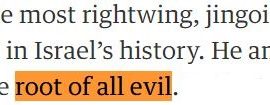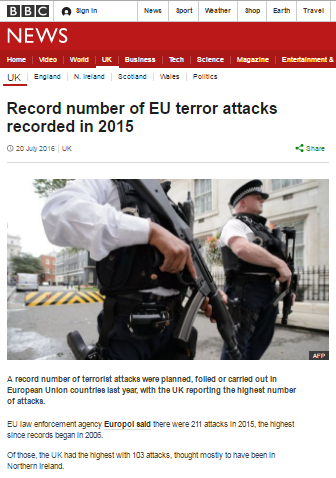1) At the INSS Carmit Valensi and Udi Dekel analyse ‘The Struggle for Control of Southern Syria’.
“The large number of actors in southern Syria and competition for influence between Russia and Iran create a dynamic decentralization of influence in the area. The local population prefers joining the element it perceives as a powerful force, and especially that provides defense and civilian assistance. Despite Iran’s determination to strengthen its grip on the area, it is now forced to downsize its activity there, due to budgetary constraints and Russia’s restraining measures. Russia itself, however, has only limited ability to curtail Iranian consolidation efforts in southern Syria, let alone expel Iran and its proxies from the area. The Assad regime has in effect adopted a “passive neutrality” in the competition between Russia and Iran, and allowed the local struggles between the various actors in order to let them wear each other out, and to prevent the emergence of a single dominant power in the area, particularly at the present time, when southern Syria is low on the regime’s list of priorities.”
2) Jacques Neriah takes a look at the state of Lebanon’s economy at the JCPA.
“Since October 2019, tens of thousands of Lebanese have lost their jobs. A third of all private-sector jobs have vanished. The total number of unemployed was estimated in June 2020 at almost 600,000, or 30% of the entire labor force of 1.8 million. The Beirut port blast hit hundreds of businesses and slashed at least 100,000 jobs in the tourism sector, one of the big employers of the Lebanese economy. Covid-19 worsened the situation, and one of the primary sources of revenue, tourism, collapsed because of the absence of tourists, mainly from the Gulf countries. Gulf State investors decided to boycott Lebanon’s financial structure when they saw the Lebanese political system taken hostage and paralyzed by Hizbullah, whose troops were fighting in Syria, Iraq, and Yemen, instead of “confronting” Israel as supposed “liberation fighters.””
3) Writing at The Daily Beast, Amir Toumaj looks at conflicting Iranian claims concerning the assassination of Mohsen Fakhrizadeh.
“Ahead of the 2021 presidential elections, the assassination has also provoked intense factional fighting, and several hardline figures have vociferously slammed the Rouhani administration. A 2021 presidential hopeful, the top IRGC commander Hossein Dehghan, who is an adviser to the Supreme Leader, said that officials must provide answers on the security breach and the “infiltration” network that led to Fakhrizadeh’s assassination. Rahim No’i-Aqdam, a retired Guard Corps commander who held a top post in Syria, said scientists have been targeted in the past decade because “the enemy” no longer feels threatened by officials, who are “useless” and influenced by “infiltrators,” referring to officials like those in the Rouhani administration. He called for a revolutionary administration to come to power.”
4) The FDD’s Julia Schulman discusses the possible effects of pending legislation in Ireland.
“Amid a COVID-19-induced economic recession, Irish independent Senator Frances Black has revived a draft law targeting Israel after a previous failed attempt. The Occupied Territories Bill, if enacted, could have disastrous consequences for U.S. economic relations with Ireland – and Ireland itself.
The Occupied Territories Bill seeks to criminalize trade in goods and services produced in Israeli settlements. When the bill was initially introduced in January 2018, it triggered a sharp denouncement from the Irish government and U.S. policymakers.”





Maybe Israel’s smartest move was somehow to taunt Iran’s Supreme Leader into repeating how they intend to annihilate Israel. That way, Israel has every legal right to assassinate Iran’s army generals.